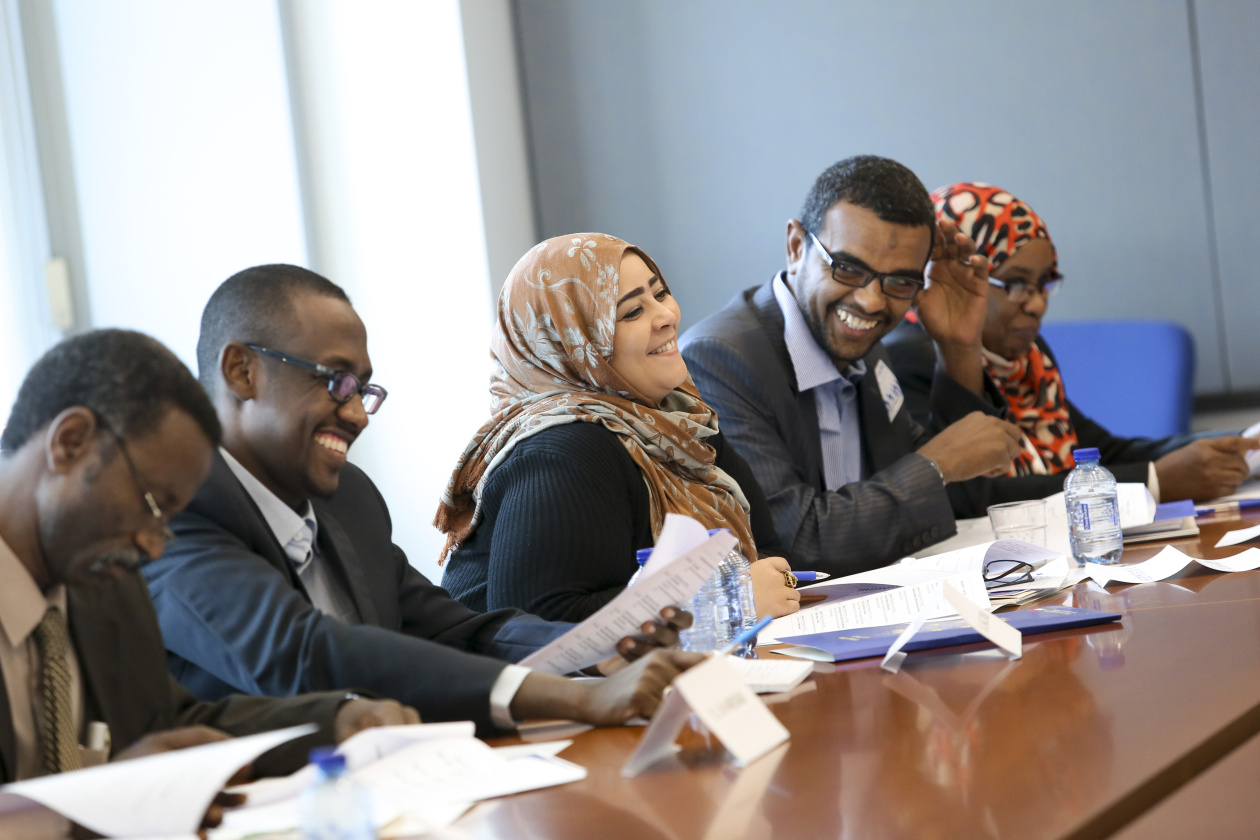 Young Political Leaders from Sudan © European Union, 2015
Young Political Leaders from Sudan © European Union, 2015
EU programme turns young people into peace leaders
Last updated on Friday, 18/12/2020
Young people like you are driving peace, reconciliation and democracy outside the EU, with support from the European Parliament. The Young Political Leaders programme helps future change-makers to end conflict and strengthen democracy.
The programme brings together young political activists, civil society representatives and business leaders from non-EU countries to engage in a peaceful dialogue. They have the chance to learn about the European Parliament and share experiences of peacebuilding and democracy.
Many come from the EU neighbourhood – Eastern Europe and the Western Balkans as well as the Middle East and North Africa – but not exclusively. For example, the programme is also active in Sudan.
Some participants are afflicted by a protracted conflict, like Armenians and Azerbaijanis or Israelis and Palestinians. But whether the programme is focusing on individual countries or whole regions, it encourages all participants to be active change agents for peaceful dialogue and democratic political engagement.
Fabio Massimo Castaldo, Vice-President of the European Parliament, leads work on the Young Political Leaders (YPL) programme. As someone who became a Member of the European Parliament before he was 30, he believes in the power of young voices.
‘Democracy is under great pressure today,’ he says. ‘This programme acknowledges the importance of building dialogue between future political leaders in order to develop a climate of trust and the confidence that will ultimately lead to a more peaceful world.’
Consensus and trust
For many participants, it can be dangerous to speak out for peace. However, one alumna was willing to describe the programme’s impact for her.
Ivana Tufegdzik became the youngest member of parliament in North Macedonia in 2016, after elections that followed years of political tension. She has been active in the YPL programme since 2017, putting her contacts and skills to good use.
‘With the Young Political Leaders programme in North Macedonia and Skopje, we organised a “Bridging the Gap” conference for all Western Balkan countries and the European Parliament with youth civil society organisations,’ she says.
That led to a win for young people.
‘In North Macedonia, for the first time, we brought a law for youth participation and youth policies,’ she adds. ‘That support of the Young Political Leaders programme has provided a huge build-up of consensus and trust among parliamentarians.’
Going digital
YPL activities continue despite the COVID-19 pandemic. Face-to-face encounters are currently out, and alumni of the programme have been invited to online meetings to share their views and experience.
YPL alumnae participated in a meeting of the European Parliament’s Sub-Committee on Security and Defence to discuss Women, Peace and Security. The YPL programme also organised a series of debates together with the Anna Lindh Foundation, in which participants have taken part in high-level digital debates with senior EU and UN officials.
For example, they have contributed to a UN Security Council open debate on youth, peace and security, and shared views with EU officials on the impact of COVID-19 on young people and on how to build trust in media.
YPL engagement looks set to continue. ‘We are now looking into developing our own online debates as an additional tool to continue to foster dialogue and reconciliation,’ says Castaldo.
Get involved
Learn more about how EU support can help you speak out – and reach out – for democracy and peace: